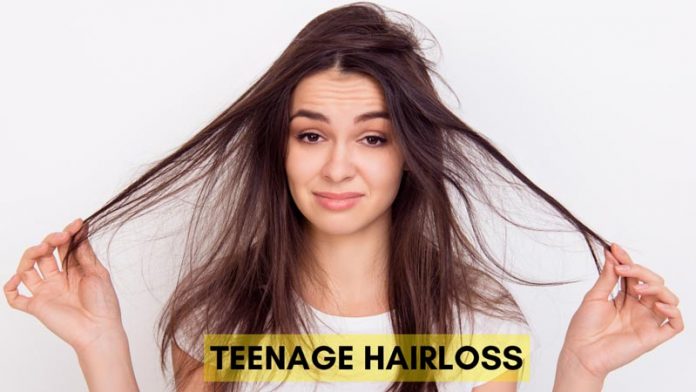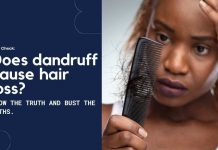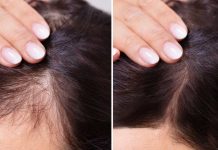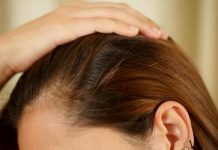Hair loss and thinning can be a distressing experience for anyone, and it’s not just a problem that affects adults. Teenagers are also prone to hair loss and thinning, which can be caused by hormonal changes, stress, nutritional deficiencies, and medical conditions. Sometimes, hair loss can be temporary and will resolve with time. Still, in other cases, it may indicate an underlying medical condition or genetic predisposition to hair loss.
In this blog, we’ll take a closer look at the causes of teenage hair loss and thinning and some tips on managing the problem and promoting healthy hair growth.
Causes of teenage hair loss in both males & females
There are several possible causes of teenage hair loss, including:
- Hormonal changes: During puberty, hormonal changes can affect the growth and thickness of hair, leading to temporary hair loss or thinning.
- Genetics: Inherited conditions such as androgenetic alopecia, also known as pattern baldness, can cause hair loss and thinning in both male and female teenagers.
- Medical conditions: Medical conditions like thyroid disease, autoimmune disorders, and iron-deficiency anaemia can cause hair loss in teenagers.
- Stress: Emotional and physical stress can disrupt hair growth and cause hair to fall out.
- Diet and nutrition: Nutritional deficiencies, particularly iron and protein, can affect hair growth and lead to hair loss.
- Medications: Certain medications used to treat acne, depression, and other conditions can cause hair loss as a side effect.
- Styling habits: Over-styling, pulling hair too tight, and using harsh chemicals can damage hair and cause it to break and fall out.
- Ringworm: Ringworm is a fungal infection that can affect the scalp and cause hair loss in both males and females. It is highly contagious and can be spread through direct contact with an infected person or animal.
- Trichotillomania: It is a type of hair loss caused by a compulsive urge to pull out one’s hair, often from the scalp, eyebrows, or eyelashes. This condition can affect both males and females and is more common in teenagers than adults.
- Alopecia areata: It is an autoimmune disorder that can cause hair loss in teenagers and people of all ages. With alopecia areata, the immune system attacks hair follicles, which can cause hair loss in small, round patches on the scalp or other body areas.
- Telogen effluvium: It is a momentary kind of hair loss characterized by excessive hair shedding. Some of the numerous probable causes include stress, sickness, childbirth, and weight loss.
Symptoms of teenage hair loss and thinning
The symptoms of teenage hair loss and thinning can vary, but some common signs to look out for include the following:
- Gradual or sudden hair loss: Teenagers may notice hair falling out in larger quantities than usual, especially when washing or brushing it.
- Thinning of hair on the scalp: Hair may appear thinner or patchy in some regions of the scalp, particularly around the crown or temples.
- Changes in hair texture or thickness: Hair may become more brittle, dry, and frizzy than usual or may start to look and feel thinner and finer.
It’s important to note that some hair loss is expected, as people typically shed around 50-100 hairs daily. However, suppose a teenager notices a sudden or significant change in their hair density or experiences any of the above symptoms. In that case, it’s best to consult a doctor to determine the underlying cause and discuss appropriate treatment options.
How to treat teenage hair loss?
The treatment options for teenage hair loss depend on the condition’s underlying cause. Several lifestyle changes can help to promote healthy hair growth and prevent further hair loss. These include:
- Healthy diet: Eating a balanced diet rich in vitamins, minerals, and protein can help to promote healthy hair growth. Vegetable greens, nuts, fish, and lean meats are particularly beneficial.
- Stress management: Managing stress through meditation, exercise, and deep breathing can help reduce stress-related hair loss.
- Avoiding harmful styling habits: Avoiding harmful styling habits such as tight hairstyles, frequent blow drying, and excessive use of chemicals can help to prevent hair breakage and damage.
See your doctor immediately if the hair loss isn’t slowing down or making you concerned. The doctor would recommend the best course of therapy for you based on your symptoms.
Top therapies for teenage hair loss
- Platelet-rich Plasma Treatment: A non-surgical PRP treatment that involves injecting the patient’s blood, processed to contain a high concentration of platelets, into the scalp to promote hair growth.
- Minoxidil: A topical medication applied to the scalp that can help slow hair loss and promote hair growth by widening blood vessels and allowing more oxygen, blood, and nutrients to the hair follicles.
- Stem cells: Stem cell therapy involves injecting stem cells into the scalp to promote hair growth and improve hair density.
- Derma roller with PRP/Rich PRP: This treatment involves using a derma roller to create tiny micro-channels on the scalp, followed by applying PRP or Rich PRP to stimulate hair growth.
- Derma Roller with Botanical Stem cells: This treatment uses a derma roller to create micro channels on the scalp and then applies botanical stem cells to stimulate hair growth.
- Derma Roller with Growth enhancers: This treatment uses a derma roller to create micro channels on the scalp and then applies growth enhancers, such as vitamins and amino acids, to stimulate hair growth.
- Plain Derma roller: A handheld roller with tiny, thin needles rolled over the scalp to stimulate hair growth.
- Hair Enrichment therapy (HET): A non-surgical treatment that injects a nutrient-rich solution into the scalp to stimulate hair growth.
- Hair FACT (Laser helmet): A wearable device with low-level laser therapy to stimulate hair growth and improve density.
Conclusion
Hair loss at a young age may be challenging. Your kid may feel the urge to conceal their hair loss, as well as tension and anxiety over the progression of their hair loss. Dealing with hair loss may be challenging. It may produce low self-esteem and have a significant impact on confidence, particularly at an age when they begin to discover who they are.
If your kid is losing their hair, it is vital to tell them that it does not affect who they are or indicate anything is wrong with them. Let them know you’re willing to listen if they ask.
Kolors Healthcare is a leading chain of hair care clinics in India that offers a range of hair loss and hair care solutions. We have 50+ clinics across South India and provide advanced treatments using the latest technology and a team of experienced professionals. In addition, we offer customized treatment plans for our clients based on their hair and scalp conditions.
Book an appointment at a location and time of your convenience and drop in for a consultation today!
Teenage hair loss FAQs
Does lack of sleep cause hair loss?
There is no direct evidence that lack of sleep causes hair loss. Still, poor sleep quality or insufficient sleep can indirectly contribute to hair loss by increasing stress hormones and affecting the immune system and the body’s ability to regenerate cells. Therefore, prioritizing quality sleep can help maintain overall health and well-being, including healthy hair growth.
What age should I worry about hair loss?
Hair loss can occur at any age but is more common in older adults. If you notice significant hair loss or thinning, you must speak with a dermatologist or hair loss specialist to determine the underlying cause and discuss appropriate treatment options.
Is hair fall normal at the age of 16?
It is common to have minor hair loss or shedding daily. But, if you are 16 and suffering considerable hair loss or thinning, you should consult a dermatologist or hair loss expert to diagnose the underlying reason and discuss treatment options.









